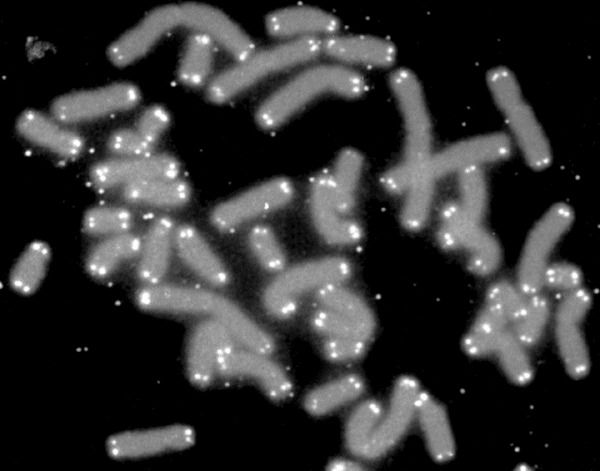Might want to dig deeper.
Unraveling the links among obesity, aging, telomere lengths and metabolic diseases is the subject of the study published today in Nature Metabolism by a collaborative research team at The University of Texas Health Science Center at Houston (UTHealth).
Telomeres act as protective caps at the end of chromosomes to prevent them from replication errors during cell divisions. Every time a chromosome replicates itself, telomeres shorten. When the telomeres become too short, the cell can no longer replicate its chromosomes safely and becomes arrested, or senescent. That shortening has been linked to the aging process and development of degenerative diseases.
“Recent studies have also shown the connection between obesity-induced metabolic diseases, such as Type 2 diabetes, and the accumulation of senescent cells, which entered the state of irreversible proliferation arrest,” said lead author Mikhail Kolonin, Ph.D., professor and Harry E. Bovay, Jr. Distinguished University Chair in Metabolic Disease Research with McGovern Medical School at UTHealth. “Cell senescence can be caused by telomere shortening due to excessive stem cell division.”
